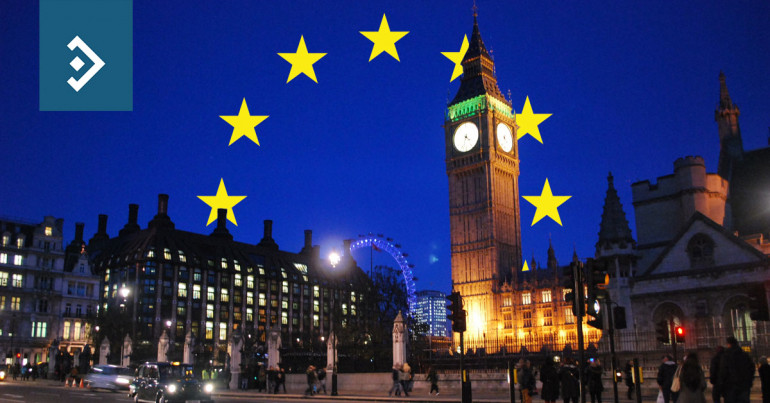
Tusk Rhetoric sharpens Brexit concerns
Morning mid-market rates – The majors
February 7th: Highlights
- EU Council President makes his position clear
- Dollar rally looks well set
- Euro struggling to find any good news
Tusk comments bring no deal closer
Tusk’s extremely blunt rhetoric cannot help the UK’s cause in trying to obtain a change in Brussels attitude towards a change in the backstop clauses in the Withdrawal Agreement.
The fact that the EU will not agree to reopen negotiations over any part of the agreement means that the time since the Parliamentary vote which “kicked the entire Brexit discussion down the road” has been simply wasted.
When the debate is reopened next week in Parliament, the only alternative left to avoid a no deal Brexit is to delay the execution of Article Fifty. Whether MPs will agree to that is hard to predict since many Brexiteers are now even more hardened towards any further discussion with Brussels.
The UK Prime Minister will meet EU officials today in what now appears to be her final attempt to break the deadlock, although the EU insists that there is no deadlock since the negotiations ended last year and an agreement was reached.
The pound barely reacted to Tusk’s comments which confirm what traders already knew since he is already on record as saying the only alternatives available to the UK are “no Brexit or a hard (no deal) Brexit.
The Bank of England meeting this morning will vote 9-0 to leave rates unchanged but the Governors statement is likely to express the MPC’s concerns over a no deal Brexit.
The pound traded in a narrow range, without testing the resistance at 1.2980 or the support at 1.2920. It reached a high of 1.2975 and a low of 1.2925 closing at 1.2936. It has barely traded overnight as the Asian market awaits a lead from London.
Considering your next transfer? Log in to compare live quotes today.
Dollar joins FOMC in being data dependent
The fact that the eurozone is seemingly headed towards a recession, despite managing, for now, to avoid the technical definition and the ECB labeling it a slowdown, has pushed the dollar index higher as the single currency has weakened.
The U.S. composite activity index which combines services, manufacturing, and industrial activity was weaker than expected. However, an upward revision in the December figure managed to counterbalance any market disappointment.
The rest of this week is devoid of any data that will move the dollar so traders will start to look at next week’s inflation and retail sales data for clues to the next significant move for the dollar.
Inflation is not a concern for the Fed currently but the retail sales data, which the market expects to be lower than the previous release, could bring a halt to the dollar’s recent rally.
While the market continues to show concern over events in the UK and EU, it is likely that the dollar will benefit from what the ECB calls benign neglect, where no firm policy becomes a policy in itself.
The dollar index continued its “baby steps” higher yesterday reaching a high of 96.43 and maintained its positive stance overnight remaining close to yesterday’s high.
Elections to drive distinction between the EU and Eurozone
The preponderance of candidates to become MEPs in the elections that will be held in a couple of months from nationalist parties is going to open the discussion about the differences between membership of the EU and membership of the Eurozone.
It is often said of Italy and Italians that they love their membership of the EU but do not have the same affection for the Eurozone which they believe has ”handcuffed their economy” and led to an unnecessarily long period of forced austerity.
That view is starting to be echoed across the smaller nations of the region as they fear that as the economic slowdown continues and the possibility grows of a recession they will be faced with a similar fate to Italy where their financial future is, to a certain extent, decided for them.
Those countries who are members of the EU but not the Eurozone believe that their membership of the EU allows them to have a say in the future of the region. However, membership of the Eurozone comes with certain preconditions which are not necessarily palatable to smaller, less robust, economies. This is despite Frankfurt insisting they assist in a more sustainable economic model than those nations are used to.
While there is no imminent threat that any nation could choose to leave the Eurozone, nationalist undertones are far more likely to drive members to consider their economic future than to consider remaining within the EU where they at least retain a veto should any further Federalization be considered not to their liking.
The euro continued its recent decline yesterday in an almost mirror image of the dollar index. It fell to a low of 1.1361 closing just seven pips from the low. It has continued to exhibit weakness overnight as the dollar has continued to show limited strength.
Have a great day!

About Alan Hill
Alan has been involved in the FX market for more than 25 years and brings a wealth of experience to his content. His knowledge has been gained while trading through some of the most volatile periods of recent history. His commentary relies on an understanding of past events and how they will affect future market performance.”



